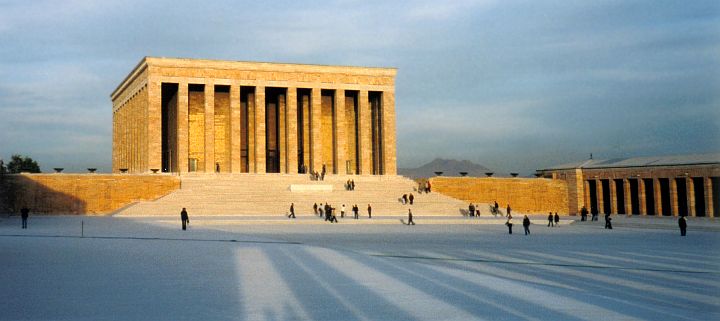Today ESI published a new report – Murder in Anatolia – Christian Missionaries and Turkish Ultranationalism. Below is more background for those of you who want to find out more about one of the most important court cases in Turkey today.
Is the deep state still smiling?
In early February 2008 one of the Malatya victims’ lawyers, Orhan Kemal Cengiz, published a series of four articles entitled “The Deep State is smiling at me in the Malatya massacre case” (see below).
From the beginning of the trial, wrote Cengiz, there were signs that some people were unhappy about the strong legal team that had come to the defence of the victims’ interests:
“We first went to Malatya a few days before the first hearing. Then we realized that there had already been a local media campaign against me and the legal team. It was quite surprising to see the hostility towards us … In addition to that, when we looked into some of the details in that news we came to the conclusion that some of the information contained in these pieces could not have been gathered without intercepting our telephone conversations and electronic communication.”
The trial had started on a bad note. In addition to the indictment, there were 32 additional files prepared with the help of the police. Remarkably, only 8 of them dealt with the crime, while the rest contained information about Christians in Malatya. Umut Sahin, general secretary of the Association of Protestant Churches, later told us:
“At the beginning there was an attempt to turn the trial against the murderers of Christians into a trial against Christians. That is why these folders contained information from the victims’ computers: what articles and books they read, their bank details. But there was nothing from the computers of the murderers.”
So what can one say about the way the Malatya trial has unfolded since 2007? Already the length of the trial has proven to be encouraging for the victims’ legal team. As lawyer Erdal Dogan told ESI in October 2009:
“Initially some wanted to finish the Malatya court case as quickly as the Santoro murder case in Trabzon. The indictment was short and focused only on the 5 main suspects. But here this did not work. We succeeded in bringing many details to the attention of the court. We urged them to conduct further investigations. We have seen that the prosecutors and judges changed their attitude during the trial. This is already a success.”
In 2006 the trial into the killing of Catholic priest Andrea Santoro in Trabzon closed after nine hearings, which took place between 15 May and 14 October 2006. Santoro’s 16 year old murderer was sentenced to 10 years and 5 months behind bars. A court of appeals later confirmed the verdict. Nobody investigated the question whether somebody else might have incited a 16 year old (and provided him with a weapon) to kill a priest of a church that had already been a target for ultranationalist groups before.
Further reading on Malatya:
Here are a few recommendations for those who want to know more about the case.
First, media which regularly cover the Malatya trial in English online:
Second, there are a number of articles by lawyer and columnist Orhan Kemal Cengiz on the Malatya trial, including an article series published in February 2008 (refered to above):
- The ‘deep state’ is smiling at me in the Malatya massacre case – I –
- The ‘deep state’ is smiling at me in the Malatya massacre case – II –
- The ‘deep state’ is smiling at me in the Malatya massacre case – III –
- The ‘deep state’ is smiling at me in the Malatya massacre case – IV –
More recently Orhan Kemal Cengiz wrote an article (in English in Today’s Zaman):
- 6 January 2011, Who did kill the three missionaries in Malatya I
- 7 January 2011, Who did kill the three missionaries in Malatya II
There is also a documentary about the murder and the trial by director Nolan Dean and released in October 2009 (in English, 69 minutes). The trailer (3 minutes) is here.
And then there are the following books by or about people close the the trial:
- Jonathan Carswell with Joanna Wright, Married To a Martyr, Authentic Media Ltd, 2008. This also exists in a German translation: Jonathan Carswell and Joanna Wright, Susanne Geske: “Ich will keine Rache”: Das Drama von Malatya [Susanne Geske: I don’t want revenge: the drama of Malatya]
- Only in German: a book by the brother-in-law of the victim Necati Aydin: Wolfgang Hade, Mein Schwager – Ein Martyrer [My brother-in-law – a martyr], Neufeld Publishing house, June 2009,




